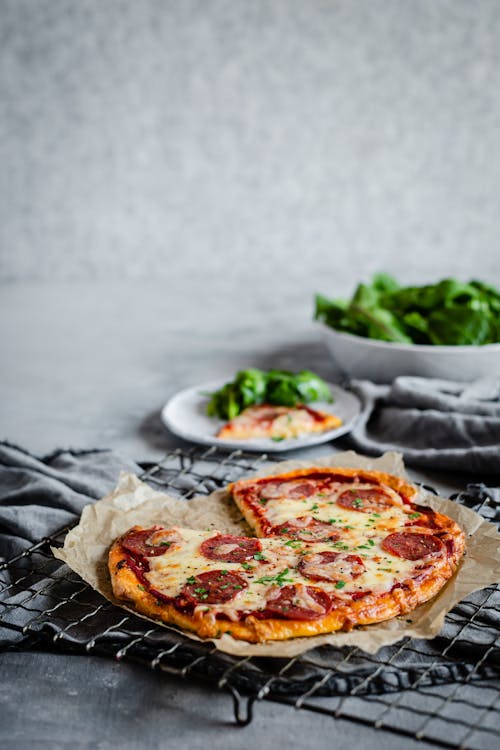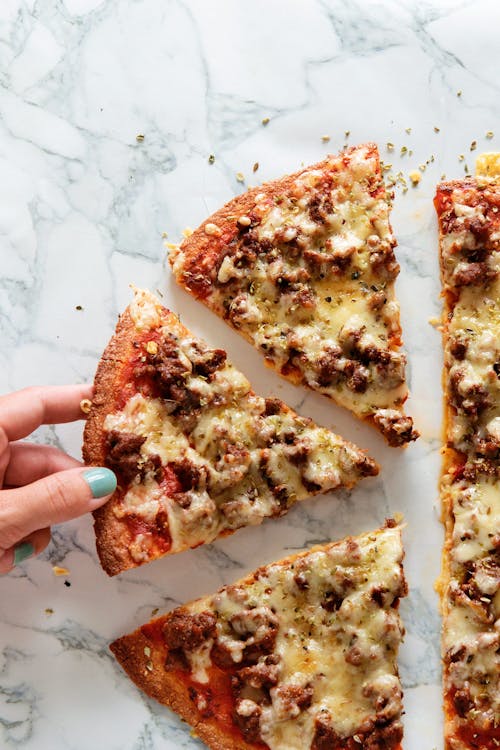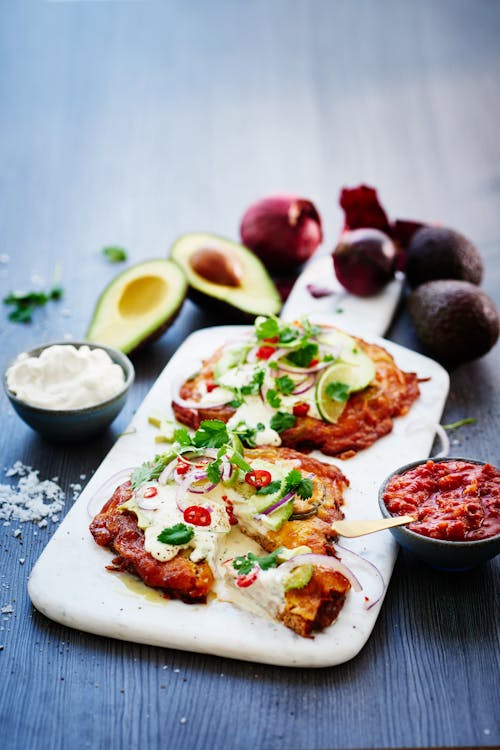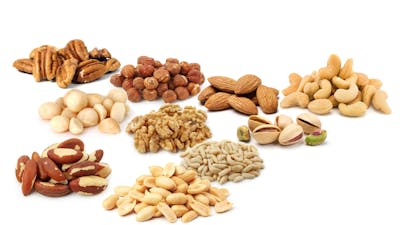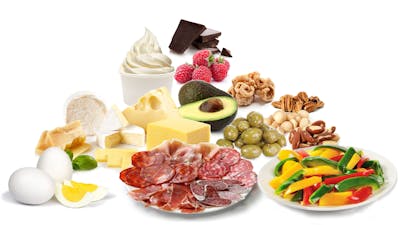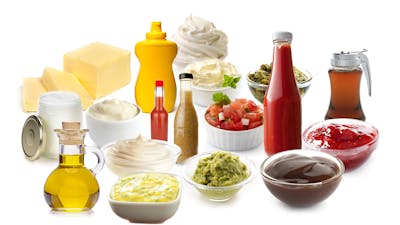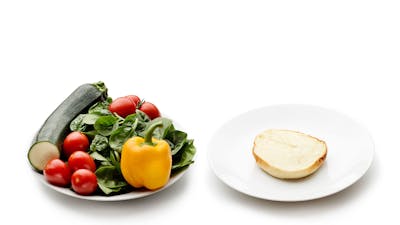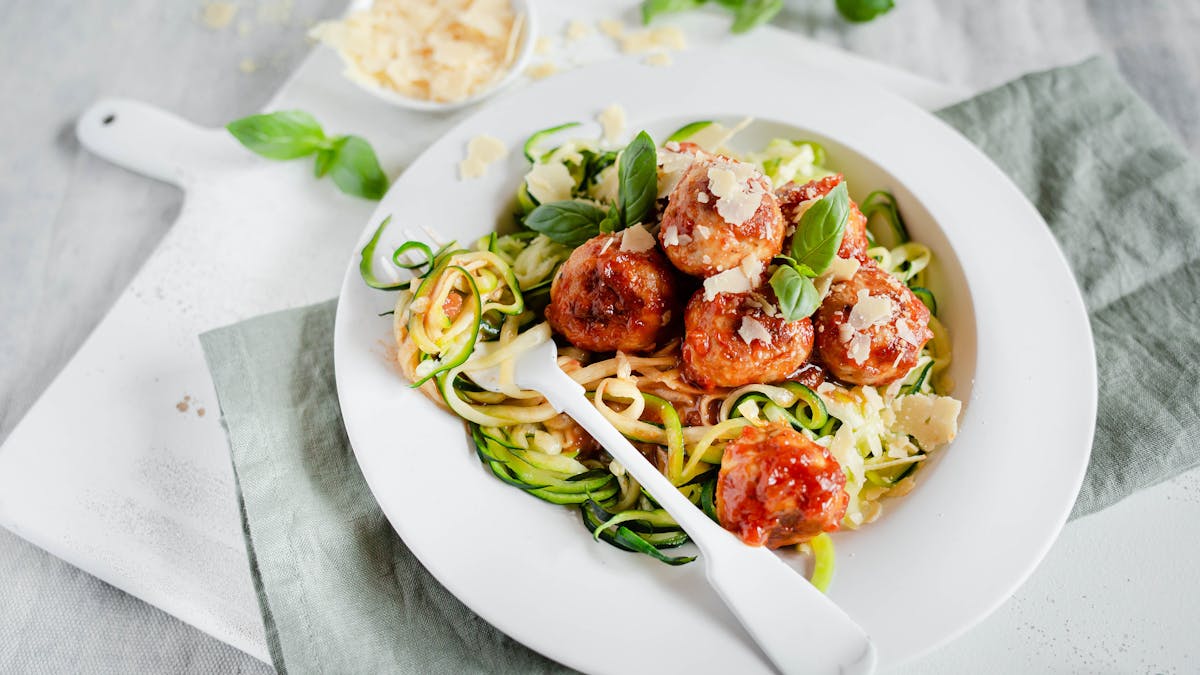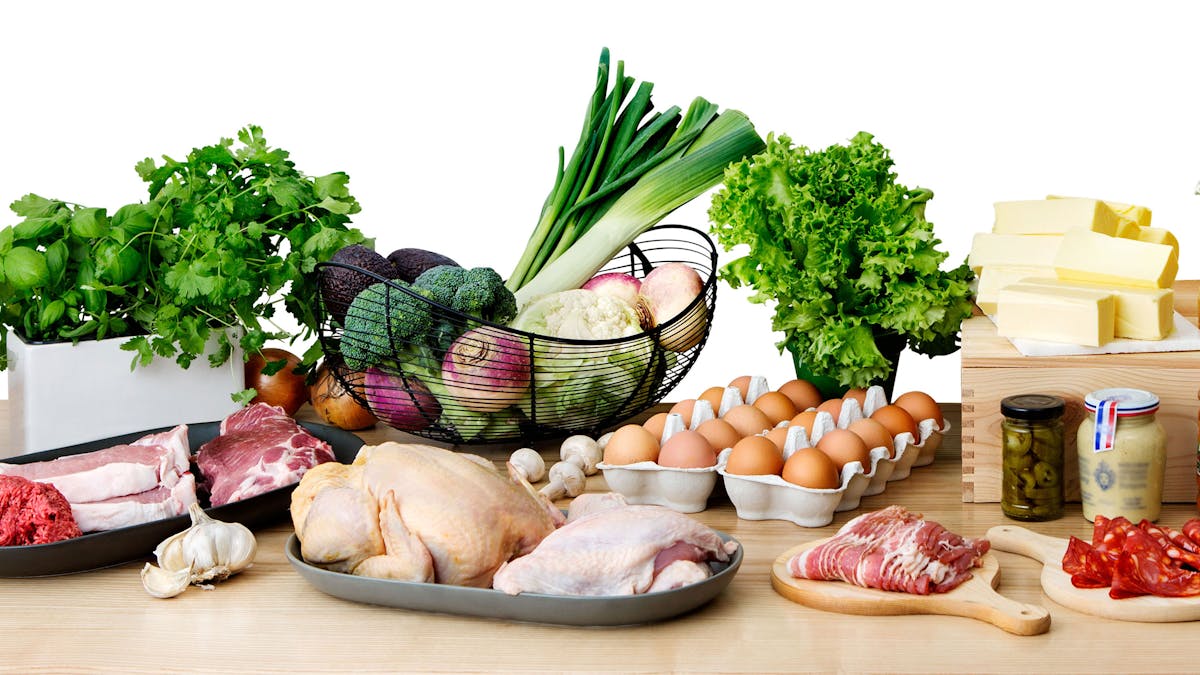How to eat a low carb or keto diet when dining out
Going out tonight? Wonderful! This guide will help you eat out and maintain your low carb lifestyle. Get ready for delicious food — anywhere! Whether you are celebrating a meal out with friends, grabbing a quick lunch near the office or having dinner at your in-laws’ home, we have ideas for how to keep it keto or low carb.Check out this great 10-minute video course with Kristie Sullivan, or keep reading below.
The basics
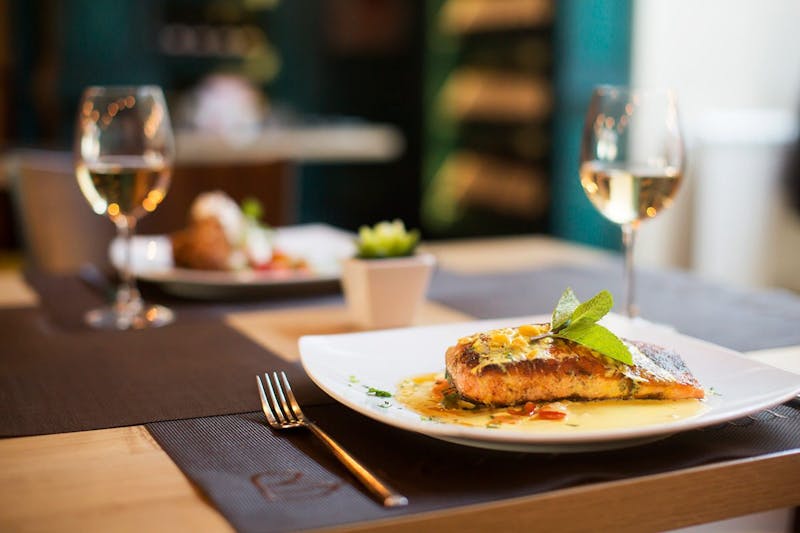
Low carb eating works anywhere. Here are seven awesome tips:
Plan ahead
Most restaurants now have their menu available online. If you are new to keto and concerned about navigating the menu, why not take a peek at home before you go? Scan the menu for keto-friendly options that are likely to be sugar-free and delicious. Once you get to the restaurant, careful ordering can customize the dish so it is perfect for your keto or low carb regimen.
Eliminate the starch
Bounce the bread. Pass on the pasta. Purge the potatoes. Refuse the rice. Keep temptation off your plate by ordering your meal without the starchy sides.
- If ordering an entrée, most restaurants will substitute a salad or extra veggies for the starch.
- If ordering a sandwich or burger, most restaurants will substitute lettuce wraps for the bun.
- If they will not substitute, simply eliminate the unwanted item, regardless.
If, in spite of careful ordering, your plate arrives with a starchy side, consider your options. If you are certain you can leave it there, untouched, feel free. If you will be tempted to eat some of it, immediately ask the waiter to replate the meal without the starch. If you are at a more casual place, take care of the unwanted food yourself by discarding the unwanted carbs in the trash before you dig into your meal.
If you feel you must explain yourself (to the waiter or your fellow diners), simply suggest stomach issues, food allergies or a restrictive diet. Although most of us want to fit in, health comes first. Always trust your judgement about a dish rather than caving-in to pressure from your dinner companions.
Add healthy fat
Restaurant meals can be low in fat, making it hard to feel satisfied without eating carbs. But this problem can be resolved by adding fat to a standard offering:
- Ask for extra butter and melt it on veggies or meat.
- Ask for olive oil and vinegar dressing and drizzle the oil liberally on salads and your meal.
- Some restaurants serve cheaper vegetable oils rather than olive oil. This is possibly not as healthy, unfortunately, as these oils are highly processed.In addition, they are very high in omega-6 polyunsaturated fatty acids (PUFAs), which most of us may consume too much of.To avoid this, many seasoned low carb eaters carry a small bottle of olive oil with them.
- Ask for heavy cream for your coffee or tea.
Keep an eye on sauces and condiments
Some sauces, like Béarnaise sauce, contain mostly fat. Others, like ketchup, contain mostly carbs. Gravies can go either way.
If you are unsure about the sauce, ask about the ingredients and avoid it if it contains sugar, flour, or other starchy thickeners. You can also ask for the sauce on the side so you can decide how much to add to your meal.
Choose drinks with care
Perfect drinks are water, sparkling water, tea, or coffee.
If you chose to add an alcoholic beverage, champagne, dry wine, light beer, or spirits — straight or with club soda — are all great low carb choices. For more details, check out our low-carb and keto alcohol guides.
Rethink dessert
Are you really still hungry? If not, preferably enjoy a nice cup of coffee or tea while you wait for others to finish their sweets. Perhaps you don’t want to drink coffee because it’s late? Good thinking — ask for decaf coffee or herbal tea instead.
If you are hungry and need more food, look for a cheese plate or berries with heavy cream. Sometimes just cream or butter in your coffee is enough to satisfy.
Get creative if necessary
If nothing on the menu seems to work for you, feel free to improvise.
- What about the Spaghetti Bolognese item – could the restaurant serve just the sauce in a bowl, like soup, with a large serving of sautéed green veggies on the side? Both would be perfect sprinkled with Parmesan cheese!
- Or, might you order two or three appetizers? A salad paired with shrimp cocktail and a cheese plate makes a delicious low carb dinner.
Just ask! You’re the customer, and customers should get the meal that they desire, within reason.
At buffet restaurants
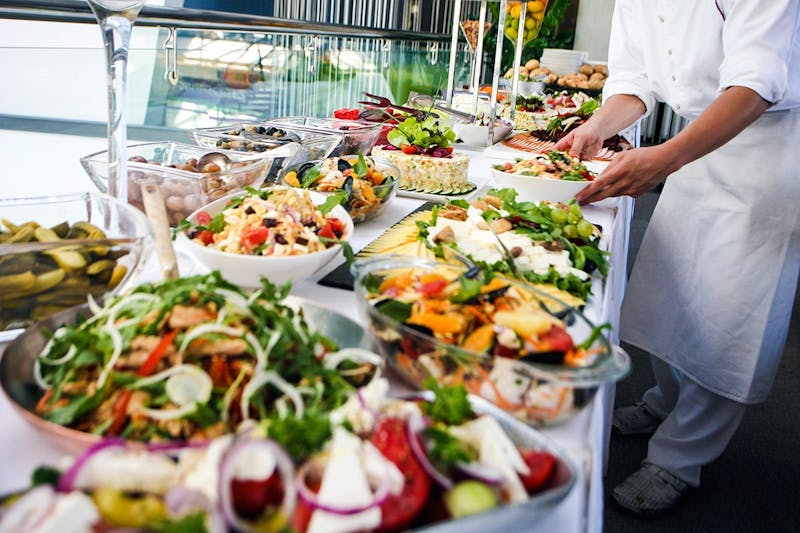


The beauty of buffets is that there are plenty of choices, including low carb and keto dishes. Don’t eat to get your money’s worth — eat for health and enjoyment instead! And never blame the chef if you overeat. You alone are in charge, so choose wisely.
Set rules before leaving the table
Before walking past the many tempting offerings, take a moment and re-commit to skipping the biggest offenders. Remember GPS – grains, potatoes, and sugar. Don’t put these on your plate.
Be deliberate. Be intentional. And don’t forget that if you cheat, you are really cheating yourself.
Focus on fats, vegetables, and protein
Focus on all of the healthy food you can enjoy: the salad bar, carving stations, seafood spreads, and vegetable platters are the real sweet spot. And you can usually find some healthy fats to add to your plate: olive oil, butter, sour cream, and cheese. If you don’t see them, ask the servers to bring some to your table.
After savoring your delicious low carb selections, any cravings for the ‘carbage’ should diminish.
Don’t overfill your plate
Plan to leave some “breathing room” on your plate so that you do not crowd it with too much food. Ideally, you want to mimic how much food you might eat in a typical meal at home. If you want to try many things, start with very small portions of each dish. You can always go back for more if you are still hungry.
Take your time
Enjoy your dinner companions and the conversation. Drink your water and sip your coffee or tea. Sometimes it takes a bit of time before you feel satisfied, so don’t rush back for seconds if you’re trying to lose weight. Perhaps you’ll feel satisfied soon anyway, and decide to skip the extra portion.
At a friend’s or relative’s place



Don’t fret about that dinner party or holiday gathering. Hosts are typically understanding and cooperative. Here are four tips:
Communicate as needed
Before the party, consider sharing your food preferences with your host. If you are on a strict keto diet, your host may appreciate some advanced notice so he or she can accommodate your needs.
If you want to keep your new lifestyle private for now, have a truthful excuse ready for well-meaning but unwanted inquires. Depending on your situation, examples could include “I have been having some stomach issues, so I am experimenting with eliminating sugar, bread, and potatoes”, or “My doctor suggested that I eliminate certain foods that make me feel unwell.” Any mention of stomach issues or doctors’ advice usually silences all inquiries.
Take the edge off your hunger at home
Eat a fatty snack before you leave for the party. Nuts, olives, or cheese are all good choices. This reduces the chance that you will feel famished when you arrive at the party, which makes it easier to resist starchy hors d’oeuvres and dinner rolls that often come out first, before healthier options. In general, taking the edge off of your hunger makes it easier to stay on-plan.
Check out our low carb snack guide.
Pick and choose
Remember, this is only one meal. Some people choose to eat more liberally when dining at a friend’s home. Perhaps you elect to enjoy the crispy coating on the fried chicken that is served — a relatively small indulgence — while skipping the french fries. If your diet is very strict and does not permit such deviations, it is probably best to call ahead and have an open discussion with your host about your needs.
That said, always feel free to pass on the breadbasket and avoid putting starch on your plate. If your meal is presented to you with a large pile of starch, do not hesitate to leave it untouched. Your health is more important than the clean plate rule many of learned as children.
Unless you bring a low carb dessert, it is quite unlikely that you will be offered one. And, since “just one bite” often leads to another, passing completely is usually the wisest choice. With all of the talk about cutting back on sugar, skipping dessert is becoming more accepted. At least there’s no need to eat it to please others. Perhaps you’d be happy with a cup of coffee or tea instead?
Bring a low carb dish
Call ahead and arrange to bring part of the meal. Your host or hostess will be grateful and you will be sure to enjoy the healthy fats included in your dish.
Fast-food restaurants
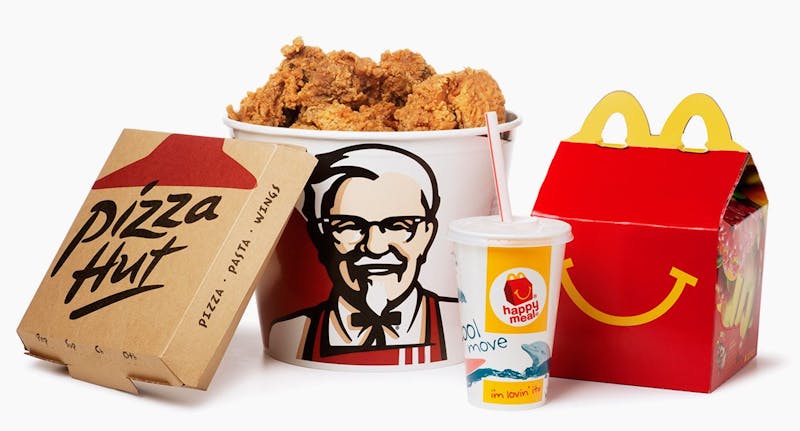


Grabbing lunch or a quick dinner? Make it low carb or keto at any of these common restaurants, or check out our list of the top 11 fast-food options for keto.
Delis, sub shops and bakery cafés
Often, the best choice in these casual eateries is a large salad.
- Order a Chef’s salad or Chicken Caesar salad. Add delicious low carb toppings such as chicken, ham, shrimp, cheese, hard boiled eggs, olives, and avocado to your salad. Make sure the chicken in grilled, not breaded.
- Pour on olive oil (plenty of it!) and vinegar, or choose Caesar, ranch or blue cheese dressing. Avoid any dressing that might be sweet, including raspberry or balsamic vinaigrette, poppy seed, French, or honey mustard. Double-check with your waiter about the dressing if you are not sure if it contains sugar.
- Add coffee or tea. Ask for whipping cream or butter to add fat.
Burger or chicken joint
Skip the fries and the soda – this is half the battle.
- Choose a burger with a lettuce wrap (instead of the bun). If unavailable, simply discard the bun.
- Load up on toppings like bacon, cheese, lettuce, tomato, avocado, and sprouts. Avoid ketchup — regular mustard (but not honey mustard or sweet mustard) and mayo are fine. If you are really hungry, double down on the patty.
- Order fast-food chicken grilled, not fried. This eliminates both the flour in the batter and the vegetable oil in the fryer.
- Enjoy chicken with a salad or go with a sandwich (ditch the bun) and veggie sides. Choose vegetable sides that are low in carbs, like green beans or broccoli, staying away from baked beans, corn, sweet potatoes, and other higher-carb veggies.
- Avoid barbecue sauce, as it is typically full of sugar. Most hot sauces and salsas are a reasonable choice.
Mexican
Lots of nice options here — but pass on those tortilla chips!
- Order a burrito bowl. Carnitas (pork), steak, chicken, barbacoa, or shrimp all work. Fajita vegetables can be added if you are open to a few carbs from the peppers and onions.
- Eliminate the rice and beans, and load up on meat, cheese, guacamole, sour cream, and salsa. You can usually pay a little extra to get double servings of any one of these ingredients.
- Some chains now offer keto bowls where the base is lettuce rather than beans and rice.
- No bowls? No problem. Unwrap your burrito and eat the contents with a fork. When you are finished, discard the tortilla.
- If you are at a Mexican place with a more expansive menu, there are several options for low carb diners: fajitas, carne asada, chili verde, and chicken mole are all great options if you skip the rice, beans and tortillas and ask for extra cheese, sour cream or guacamole.
Asian
Proceed with caution at Chinese, Japanese, Thai and Vietnamese restaurants.
- Focus on staying away from choices that are battered or taste sweet.
- Order a dish made with brown sauce — usually a safe, savory option. Ask your waiter to be sure. Stir-fries or curries made with meat, seafood, and low carb vegetables taste great without the rice. Try ordering a side of sautéed green beans or cabbage and using that as an accompaniment for your stir-fry. Bean sprouts also work as a base.
- Ask for coconut oil. It’s a great way to add fat to your meal. Peanut, sesame, or olive oil might be available as well. And most restaurants have butter if you ask for it!
- Order crispy Duck (ensure that it comes without a sweet sauce) or Chop Suey (without thickeners in the sauce, if possible). If you find Shirataki noodles on the menu, note that they are very low in carbohydrates. Chicken lettuce wraps are also a decent option, although ask about sugar in the chicken filling.
Indian
Indian cuisine offers many good options for adventurous low carb eaters.
- Ask for ghee, an Indian staple; it is clarified butter — pure fat! It is perfect for low carb, so add it to any dish!
- Choose kebabs, curries (without potatoes), meat in creamy sauces (like tikka masala and butter chicken), and tandoori dishes. Skip the rice and the naan.
- Try adding Raita (a creamy dip made from plain yogurt — hopefully full-fat — and shredded cucumbers.)
- Fresh Indian cheese (paneer) is fine, but watch for hidden carbs (flour or other thickeners) in some of these dishes. Ask your waiter about the ingredients.
Pizza
The flavor of pizza is a near universal favorite — and it’s in the sauce and toppings, not the crust! If you will be too tempted to leave most of the crust on your plate, choose a different kind of restaurant.
- Look for a crustless option on the menu; if you don’t see it, ask if it your pizza can be made with no crust. Some outlets now offer cauliflower crust pizzas, but these are often made with rice flour and are still quite high in carbs, so check the nutrition facts before diving in.
- If you order a traditional pizza, load up on toppings and eat as little of the crust as possible. Most toppings are low carb. Consider doubling your favorites.
- Ask for a knife and fork to help you avoid eating most of the crust.
- Skip ordering and make pizza at home instead! Try a cauliflower crust, a Fat Head pizza, or our super simple egg and cheese pizza.
That’s it. We hope you feel ready to navigate almost any restaurant with confidence. Bon appétit, keto-style!
More
Top 11 fast-food options for keto or low carb
Video guide
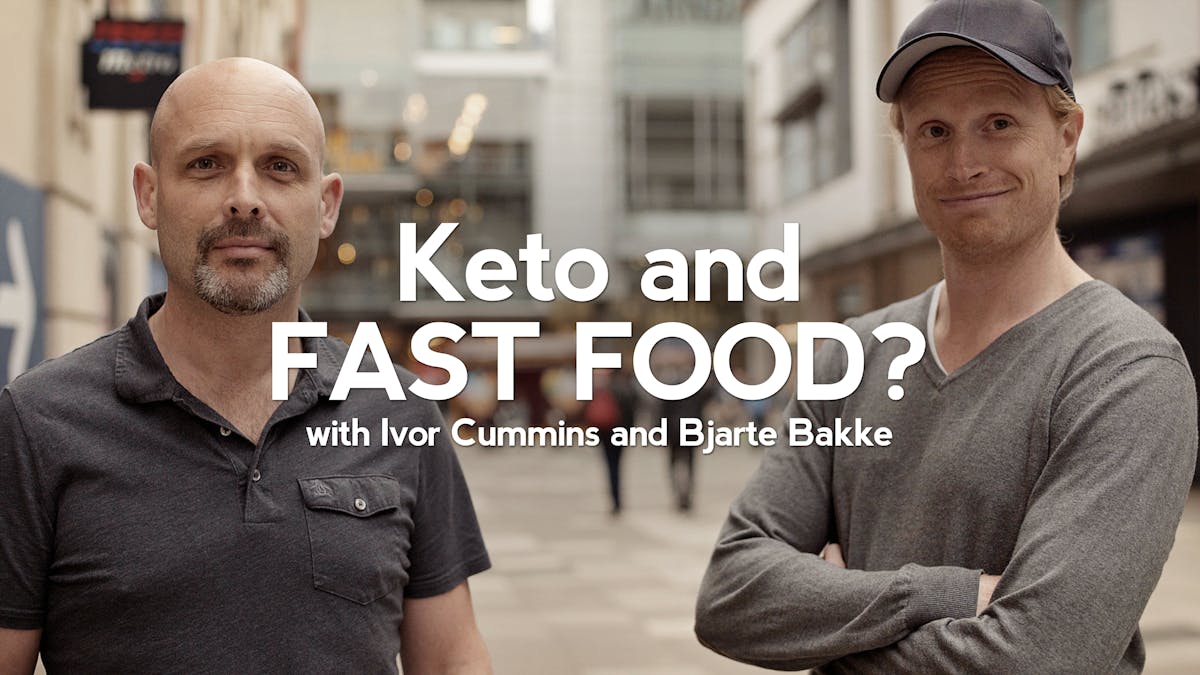

Visual low carb guides


